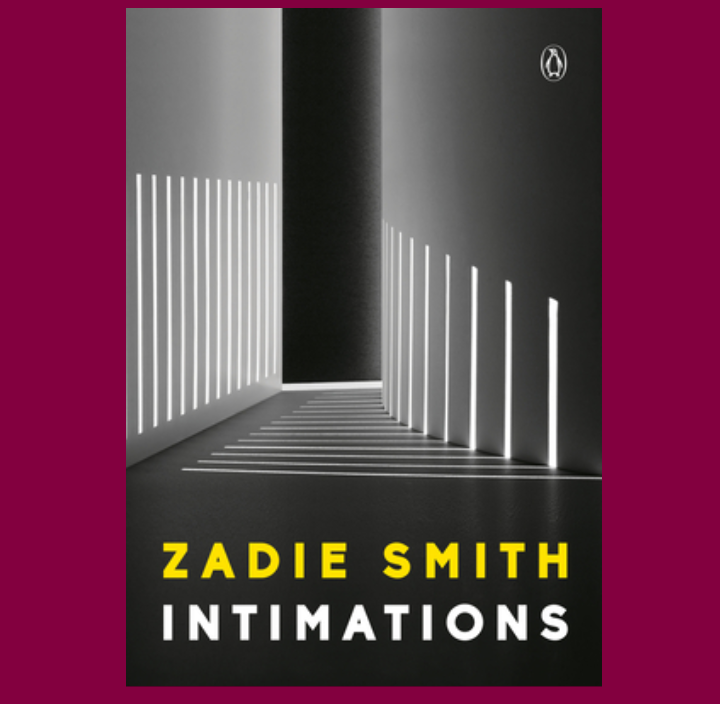

“Disaster demanded a new dawn. Only new thinking can lead to a new dawn. We knew that,” wrote Zadie Smith in her latest work, Intimations.
Intimations is one of the first books to come from a major author since the pandemic started that is written about the pandemic itself. It is a collection of six essays, each of which covers a different experience in the early days of the COVID-19 lockdown — from March to midsummer.
In some ways, reading Imitations reminds of Julie Nolke’s YouTube series in which she describes the pandemic to her former self — it has over 16 million views. Except Nolke is a passive observer getting upset at the news as seen from Toronto, Canada. By contrast, Zadie Smith speaks from a New York perspective, and the perspective of a Black woman in an upper economic class, who is not afraid to flaunt it to the reader. These are highly personal stories about the author’s experience.
Still, the problem with the book is that it feels dated the moment it was printed. I am not sure how many of us are up to the task of reliving the middle portion of 2020. In COVID time, it feels as much like a lifetime ago as it feels just yesterday. In order to get into the writing, one might have to pretend that they are either hearing about this for the first time or with some distance from 2020.
If you can do that, then there is much to appreciate. The clarity of the writing and ideas presented are paramount. Smith reminds me of the Czech writer, Milan Kundera, in the way that you leave her work feeling that you have learned some life lesson.
The book will mostly likely serve as a powerfully written record of the early part of the pandemic. It’s not exactly The Decameron, but it paints a picture of its time more than it reports on it. Art tends to endure more so than journalism because it strikes a chord in the human experience.
Smith begins her book talking about older women looking at flowers around 9th street and sixth avenue in New York City. She then speaks of the writer not as a creator, but as a control freak setting the world in her own mold. We then learn about people she knows in the village, where she lives.
Smith is a writing professor at NYU, and she speaks of the personal styles of her students (the style of all young people — now radically interrupted due to the pandemic) and the promise of youth in all its vapid forms, as well as the underlying emptiness of the structures (university, technology) that young people rely on — so much so that their style is really all they own.
As random as this all sounds, it feels real in the shadow of COVID. The struggle of getting through one’s life during a pandemic is the challenge if you managed to stay healthy so far. We still have the same goals and needs as we did before, it’s just harder now.
If you read just one essay, Postscript: Concept As A Virus, is the one. Here, Smith speaks of racism as a virus, and the murder of George Floyd is described this way. She also writes of the contempt of world leaders wanting the masses to develop herd immunity from COVID-19 so that they don’t have to deal with people whose lives mean so little to them.
The author did not contract COVID-19 or speak of anyone who did. She speaks of a lot of privilege in her life, but she is not divorced from the world and has a clear point of view.
This collection of essays reminds us that we need new dreams tonight. It tells us that we are in the dawn of the day of COVID and it’s just one part of the story. While it’s hard to reflect on something that is still happening, maybe it’s good to take a break and just breathe during a pandemic that takes away the breath.
